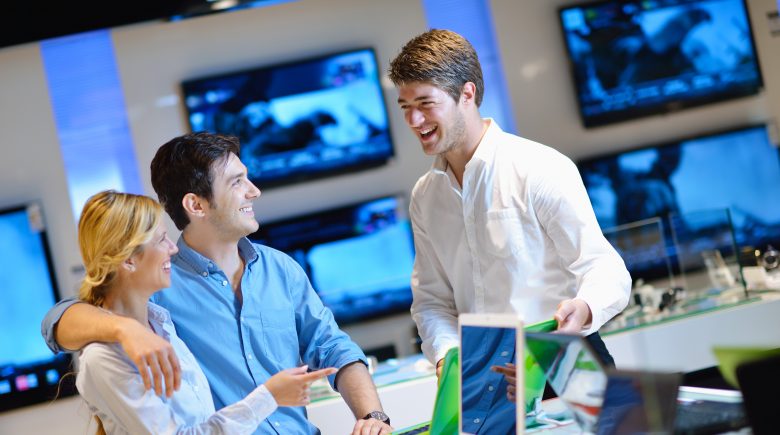A few months ago, I was presented with the question, “Should I go the typical route of most college students and buy a Mac computer? Or should I remain a PC guy?” Although money was a factor in my mind, I didn’t know that the ultimate choice would result from a benefit my previous laptop offered.
A typical Macbook runs from $999 to $2000+. Having saved just around $1300 for this purchase, I was convinced that I would buy one. On a whim, I decided to visit my local Sony store to see how much it would cost to repair my damaged computer. Rather than being issued an estimate, I was told that by trading in my laptop I would receive upwards of $300 towards my new one. As can be said, my guards were put down at the realization that I could save over $400 by using my trade in benefits and student discount (that would mean saving over $600 when in comparison to the cost of a Mac).
Many companies are taking on this innovative approach to keeping their customers. Consumer choice theory predicts that when offered the right benefits, a consumer will look to purchase what benefits them. With this in mind, companies are offering product buybacks; however, instead of giving cash return, they are issuing store credits towards purchasing company products.
This smart technique creates customer loyalty. By offering benefits to past customers, there is an even larger chance that that customer will remain a customer when weighing competitor’s options. This is conjunction with the student discount provided by Sony, Apply, and similar companies provided me with the incentive to purchase a Sony product. To me, a Macbook Pro would’ve cost me $1399. A Sony Vaio with similar (and arguably better) qualities and components turned out to be $550 before taxes.
I encourage you to all look into student, family, and trade in benefits next time you consider purchasing a computer. Things you may not know can save you hundreds of dollars.
A few months ago, I was presented with the question, “Should I go the typical route of most college students and buy a Mac computer? Or should I remain a PC guy?” Although money was a factor in my mind, I didn’t know that the ultimate choice would result from a benefit my previous laptop offered.
A typical Macbook runs from $999 to $2000+. Having saved just around $1300 for this purchase, I was convinced that I would buy one. On a whim, I decided to visit my local Sony store to see how much it would cost to repair my damaged computer. Rather than being issued an estimate, I was told that by trading in my laptop I would receive upwards of $300 towards my new one. As can be said, my guards were put down at the realization that I could save over $400 by using my trade in benefits and student discount (that would mean saving over $600 when in comparison to the cost of a Mac).
Many companies are taking on this innovative approach to keeping their customers. Consumer choice theory predicts that when offered the right benefits, a consumer will look to purchase what benefits them. With this in mind, companies are offering product buybacks; however, instead of giving cash return, they are issuing store credits towards purchasing company products.
This smart technique creates customer loyalty. By offering benefits to past customers, there is an even larger chance that that customer will remain a customer when weighing competitor’s options. This is conjunction with the student discount provided by Sony, Apply, and similar companies provided me with the incentive to purchase a Sony product. To me, a Macbook Pro would’ve cost me $1399. A Sony Vaio with similar (and arguably better) qualities and components turned out to be $550 before taxes.
I encourage you to all look into student, family, and trade in benefits next time you consider purchasing a computer. Things you may not know can save you hundreds of dollars.



